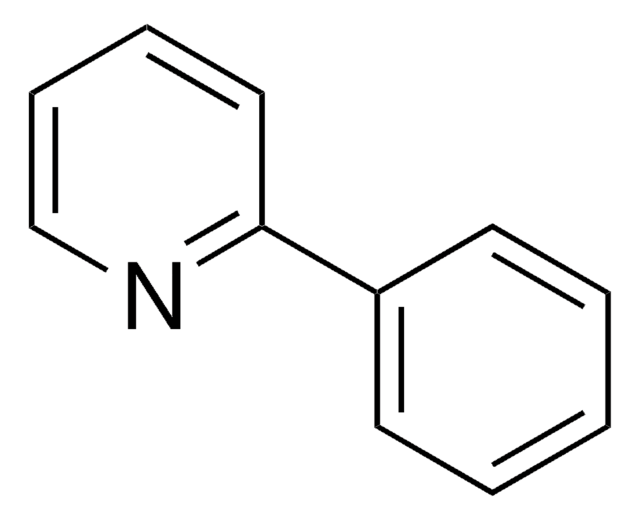261769
8-Methylquinoline
97%
Synonym(s):
o-Toluquinoline
Sign Into View Organizational & Contract Pricing
All Photos(1)
About This Item
Empirical Formula (Hill Notation):
C10H9N
CAS Number:
Molecular Weight:
143.19
Beilstein:
111340
EC Number:
MDL number:
UNSPSC Code:
12352100
PubChem Substance ID:
NACRES:
NA.22
Recommended Products
Quality Level
Assay
97%
form
liquid
refractive index
n20/D 1.614 (lit.)
bp
143 °C/34 mmHg (lit.)
mp
−80 °C (lit.)
density
1.052 g/mL at 25 °C (lit.)
SMILES string
Cc1cccc2cccnc12
InChI
1S/C10H9N/c1-8-4-2-5-9-6-3-7-11-10(8)9/h2-7H,1H3
InChI key
JRLTTZUODKEYDH-UHFFFAOYSA-N
Looking for similar products? Visit Product Comparison Guide
General description
Tumorigenic potential of 8-methylquinoline has been evaluated in newborn CD-1 mice and Sprague-Dawley rats.
Application
8-Methylquinoline has been used in preparation of osmium chloridophosphine complexes, as quinoline carbene tautomers.
Signal Word
Warning
Hazard Statements
Precautionary Statements
Hazard Classifications
Eye Irrit. 2 - Skin Irrit. 2 - STOT SE 3
Target Organs
Respiratory system
Storage Class Code
10 - Combustible liquids
WGK
WGK 3
Flash Point(F)
221.0 °F - closed cup
Flash Point(C)
105 °C - closed cup
Personal Protective Equipment
dust mask type N95 (US), Eyeshields, Gloves
Choose from one of the most recent versions:
Already Own This Product?
Find documentation for the products that you have recently purchased in the Document Library.
Customers Also Viewed
Kate B McMurtrey et al.
Organic letters, 14(16), 4094-4097 (2012-08-01)
The palladium-catalyzed C-H fluorination of 8-methylquinoline derivatives with nucleophilic fluoride is reported. This transformation involves the use of AgF as the fluoride source in combination with a hypervalent iodine oxidant. Both the scope and mechanism of the reaction are discussed.
Kami L Hull et al.
Journal of the American Chemical Society, 128(22), 7134-7135 (2006-06-01)
This communication describes the development of a new Pd-catalyzed method for the fluorination of carbon-hydrogen bonds. A key step of these transformations involves palladium-mediated carbon-fluorine coupling-a much sought after, but previously unprecedented, transformation. These reactions were successfully achieved under oxidative
Synthetic routes to N-heterocyclic carbene complexes: pyridine-carbene tautomerizations.
Doris Kunz
Angewandte Chemie (International ed. in English), 46(19), 3405-3408 (2007-04-05)
R Yang et al.
Luminescence : the journal of biological and chemical luminescence, 16(2), 129-133 (2001-04-20)
8-Methylquinoline is unique among the monomethylquinolines in the red-shift it shows in the absorption band derived from the short axis polarized ((1)L(a) <-- (1)A) electronic transition, relative to that in quinoline itself. The effect is even more pronounced in the
C E Scharping et al.
Carcinogenesis, 14(5), 1041-1047 (1993-05-01)
The hepatic microsomal metabolism of the carcinogenic 8-methylquinoline (8MQ) and its noncarcinogenic isomer, 6-methylquinoline (6MQ), were compared for preparations from control rats and rats pretreated with phenobarbital or 3-methylcholanthrene. For each compound the alcohol was the major metabolite, constituting 50-75%
Our team of scientists has experience in all areas of research including Life Science, Material Science, Chemical Synthesis, Chromatography, Analytical and many others.
Contact Technical Service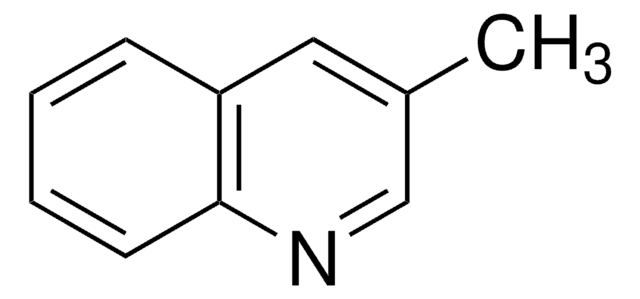
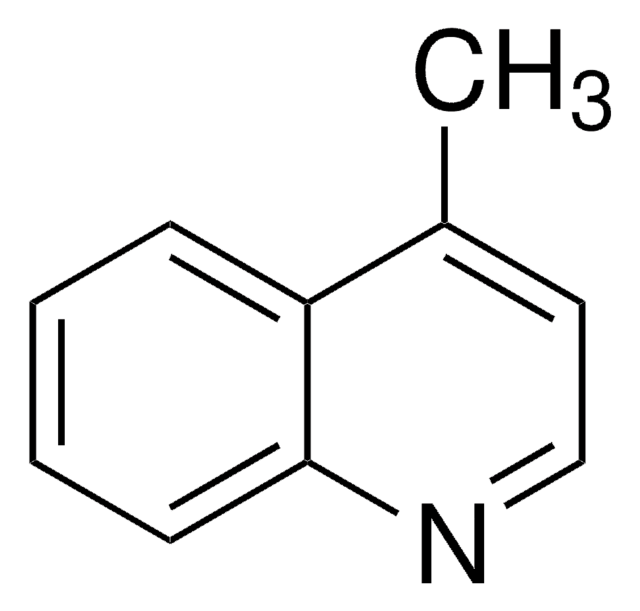
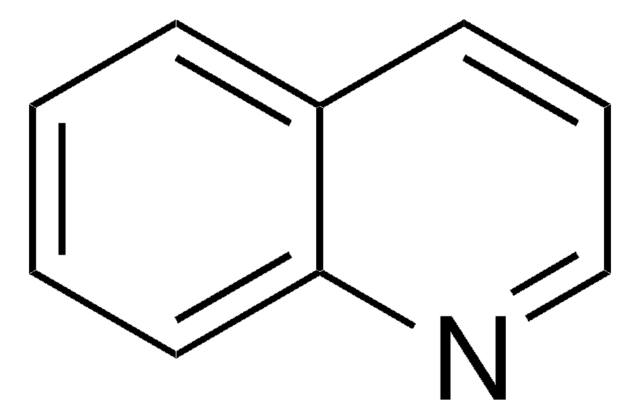
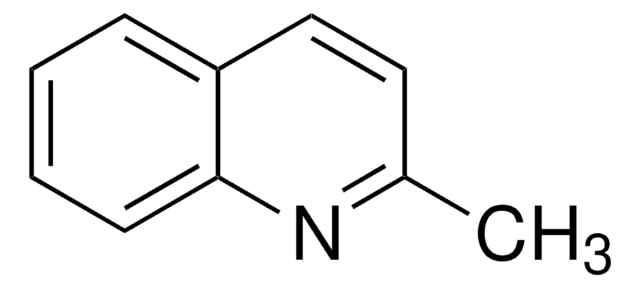
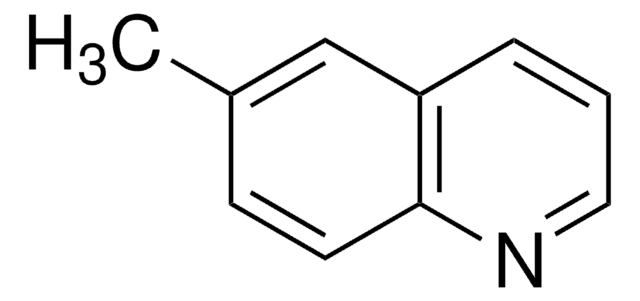
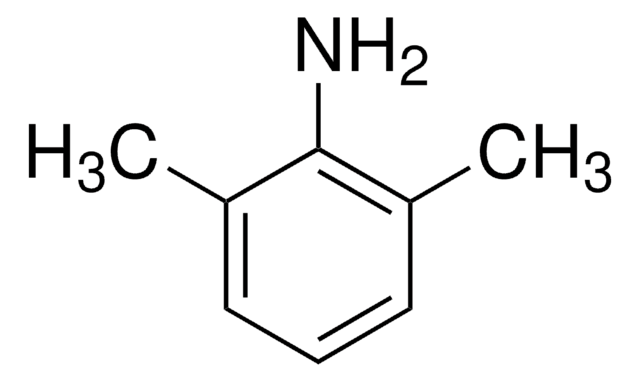
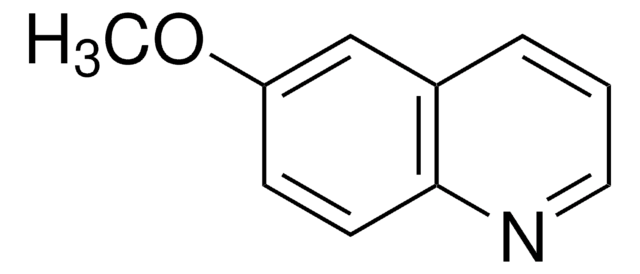
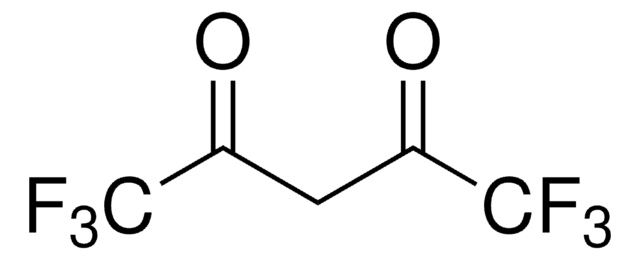
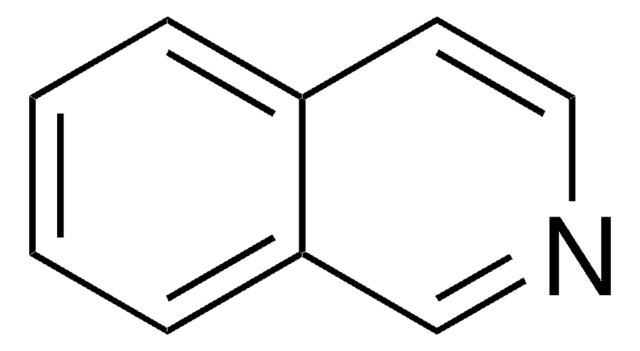
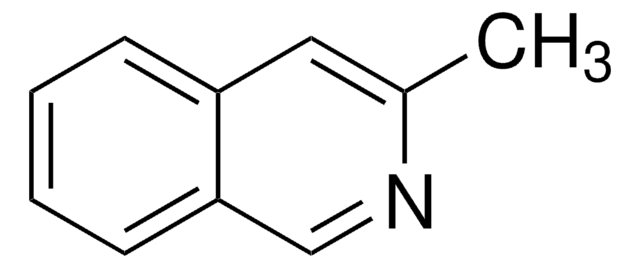

![Benzo[h]quinoline 97%](/deepweb/assets/sigmaaldrich/product/structures/344/715/928932d2-4ca4-4402-b56c-85a80100ce17/640/928932d2-4ca4-4402-b56c-85a80100ce17.png)
